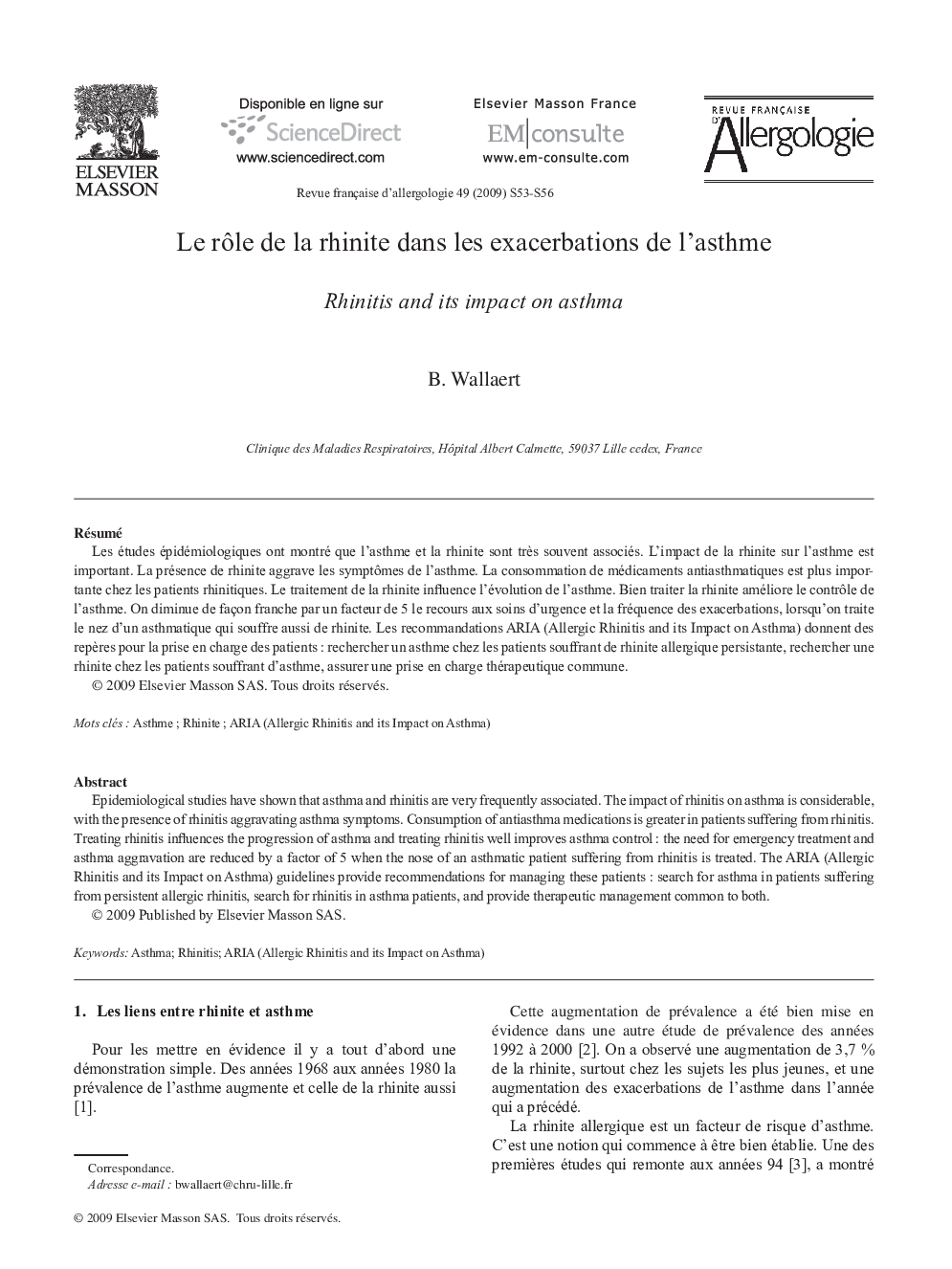| Article ID | Journal | Published Year | Pages | File Type |
|---|---|---|---|---|
| 3387110 | Revue Française d'Allergologie | 2009 | 4 Pages |
RésuméLes études épidémiologiques ont montré que l’asthme et la rhinite sont très souvent associés. L’impact de la rhinite sur l’asthme est important. La présence de rhinite aggrave les symptômes de l’asthme. La consommation de médicaments antiasthmatiques est plus importante chez les patients rhinitiques. Le traitement de la rhinite influence l’évolution de l’asthme. Bien traiter la rhinite améliore le contrôle de l’asthme. On diminue de façon franche par un facteur de 5 le recours aux soins d’urgence et la fréquence des exacerbations, lorsqu’on traite le nez d’un asthmatique qui souffre aussi de rhinite. Les recommandations ARIA (Allergic Rhinitis and its Impact on Asthma) donnent des repères pour la prise en charge des patients : rechercher un asthme chez les patients souffrant de rhinite allergique persistante, rechercher une rhinite chez les patients souffrant d’asthme, assurer une prise en charge thérapeutique commune.
Epidemiological studies have shown that asthma and rhinitis are very frequently associated. The impact of rhinitis on asthma is considerable, with the presence of rhinitis aggravating asthma symptoms. Consumption of antiasthma medications is greater in patients suffering from rhinitis. Treating rhinitis influences the progression of asthma and treating rhinitis well improves asthma control : the need for emergency treatment and asthma aggravation are reduced by a factor of 5 when the nose of an asthmatic patient suffering from rhinitis is treated. The ARIA (Allergic Rhinitis and its Impact on Asthma) guidelines provide recommendations for managing these patients : search for asthma in patients suffering from persistent allergic rhinitis, search for rhinitis in asthma patients, and provide therapeutic management common to both.
